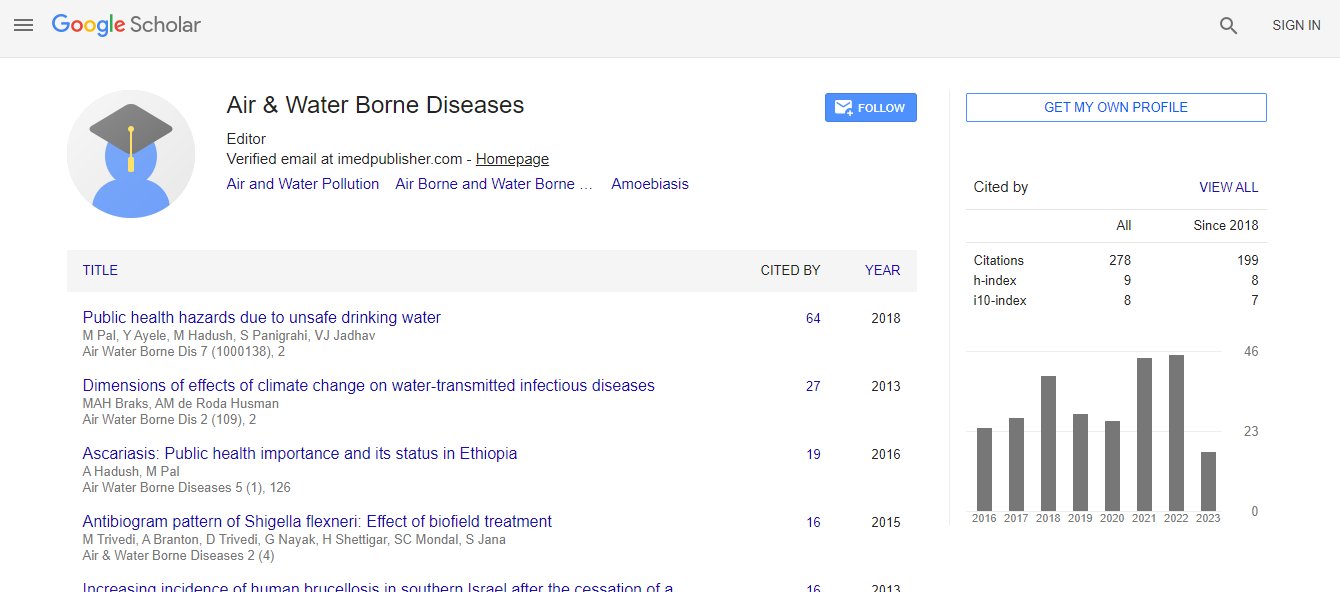Our Group organises 3000+ Global Conferenceseries Events every year across USA, Europe & Asia with support from 1000 more scientific Societies and Publishes 700+ Open Access Journals which contains over 50000 eminent personalities, reputed scientists as editorial board members.
Open Access Journals gaining more Readers and Citations
700 Journals and 15,000,000 Readers Each Journal is getting 25,000+ Readers
Google Scholar citation report
Citations : 225
Air & Water Borne Diseases received 225 citations as per Google Scholar report
Indexed In
- Index Copernicus
- Google Scholar
- Sherpa Romeo
- Open J Gate
- Genamics JournalSeek
- Academic Keys
- Ulrich's Periodicals Directory
- RefSeek
- Hamdard University
- EBSCO A-Z
- OCLC- WorldCat
- Geneva Foundation for Medical Education and Research
- ICMJE
Useful Links
Related Subjects
Share This Page
Diarrhoea
Diarrhoea, is the condition of having at least three loose or liquid bowel movements each day. It often lasts for a few days and can result in dehydration due to fluid loss. Signs of dehydration often begin with loss of the normal stretchiness of the skin and changes in personality. This can progress to decreased urination, loss of skin colour, a fast heart rate, and a decrease in responsiveness as it becomes more severe. The most common cause is an infection of the intestines due to a virus, bacteria, or parasite; a condition known as gastroenteritis. These infections are often acquired from food or water that has been contaminated by stool, or directly from another person who is infected. It may be divided into three types: short duration watery diarrhoea, short duration bloody diarrhoea, and if it lasts for more than two weeks, persistent diarrhoea. The short duration watery diarrhoea may be due to an infection by cholera. If blood is present it is also known as dysentery. A number of non-infectious causes may also result in diarrhoea, including hyperthyroidism, lactose intolerance, inflammatory bowel disease, a number of medications, and irritable bowel syndrome.

